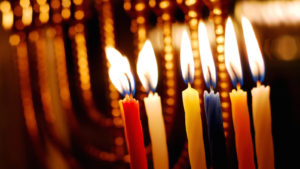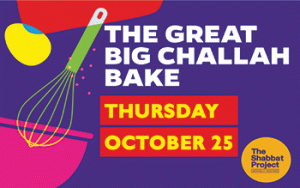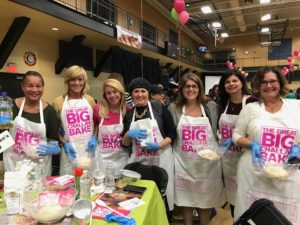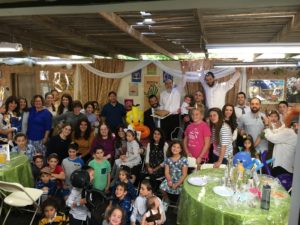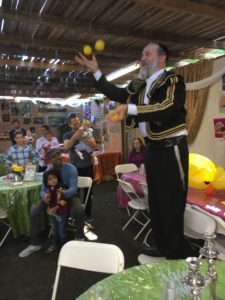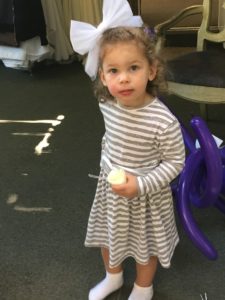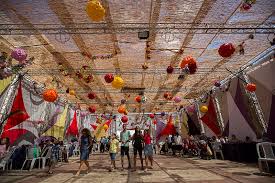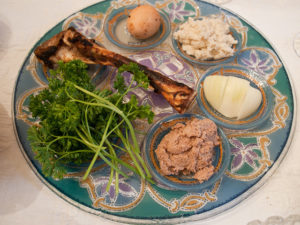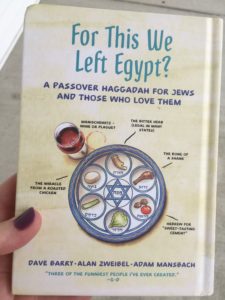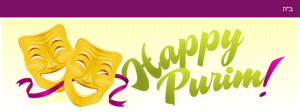8 New Things I Learned About Hanukkah
Every year I learn something new about the Jewish holidays, which are all rich in history and dramatic storytelling of survival that influence our treasured customs, traditions, rituals, and, of course, our favorite foods because c’mon we love to eat. Hanukkah, which falls in November or December when the dark days of winter are approaching, happens to be one of the most widely celebrated times in the Jewish calendar. It’s popularity is not because the Festival of Lights is the most sacred holiday but because religious and nonreligious Jews alike embrace the traditions of lighting the menorah, eating latkes, spinning the dreidel, exchanging gifts, and devouring those gold foiled candies known as chocolate gelt, a Yiddish word for “money.” But Hanukkah, which is a Hebrew word for “dedication,†means so much more than enjoying fun and games and splurging on scrumptious sufganiyot or jelly-filled doughnuts.
As early as preschool, we are taught about the Hanukkah miracles of the Maccabees and the oil lasting for eight days, and as we grow up and mature and become parents ourselves, we continue to find deeper meaning of the sacrifices that our ancestors made thousands of years ago and how these lessons are relevant to our modern lives. By celebrating these holidays, sharing the joy with our children, and growing spiritually from each other, we continue to learn, show our pride, and most importantly keep Judaism alive.
So, following are EIGHT fascinating facts that I discovered or re-learned in a new way about Hanukkah this year. Feel free to share your new insights of Hanukkah, too! Continue reading
The Mitzvah of Women Making Challah
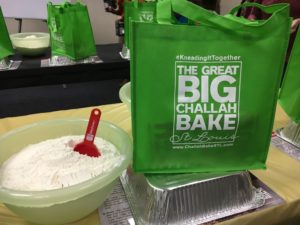 Whenever I make challah with my girlfriends, and we’re schmoozing, mixing, kneading, and laughing, the braided breads always turn out better than when I shape the dough by myself in my kitchen. And I’m not sure why, maybe it’s my imagination. We use the same ingredients—yeast, water, sugar, flour, oil, egg, salt—a basic bread recipe, although some women go gourmet and add sweet or savory fillings and create fancy designs. It must be the energy in the room, the shared focus on why we are here, that makes challah taste better when we make it together. The rhythm of squishing the sticky dough through our fingers and leaning in to it with our hands can work up a sweat if we’re doing it right. And when the floury soft mound finally forms, I can’t resist patting it like a baby’s bottom. By the time we catch the first whiff of fragrant yeast, we are transcended to a different space. When we make challah together, we forget about our list of things to do and just be in the moment. Continue reading
Whenever I make challah with my girlfriends, and we’re schmoozing, mixing, kneading, and laughing, the braided breads always turn out better than when I shape the dough by myself in my kitchen. And I’m not sure why, maybe it’s my imagination. We use the same ingredients—yeast, water, sugar, flour, oil, egg, salt—a basic bread recipe, although some women go gourmet and add sweet or savory fillings and create fancy designs. It must be the energy in the room, the shared focus on why we are here, that makes challah taste better when we make it together. The rhythm of squishing the sticky dough through our fingers and leaning in to it with our hands can work up a sweat if we’re doing it right. And when the floury soft mound finally forms, I can’t resist patting it like a baby’s bottom. By the time we catch the first whiff of fragrant yeast, we are transcended to a different space. When we make challah together, we forget about our list of things to do and just be in the moment. Continue reading
Great Big Challah Bake 2018–We Knead You!
Thanksgiving is a holiday that is celebrated once a year, right? But for Jewish people, Shabbat is like the special time of Thanksgiving. Every. Single. Friday. On Shabbat, also called Shabbos and the Sabbath, we gather with family and friends. We recognize our blessings. We give thanks. We splurge on a feast with our favorite foods. We decorate the table with fresh flowers, linen tablecloth, and candlesticks. We light candles, recite prayers, pour wine, share our abundance, and break bread. We eat some more. We engage in quality time with our children and families. We stuff ourselves with dessert. We enjoy our down time. We nap on the couch. We walk. We play. We hang out together. We immerse ourselves in a good book, as in, The book. We eat some more.
In the modern world of technology, it’s more challenging than ever to unplug from our non-stop schedules that includes jobs, kids, social media, traffic, deadlines, and everyday stresses in order to be still and reconnect with each other. Think of Shabbat as  25 hours of bliss, from sundown on Friday to  when the twinkling stars appear Saturday night, this is your time to rest, relax, rejuvenate the body, mind, and soul because when Sunday rolls around it’s time to get up and go again. Over the generations, many of these sacred rituals and traditions have faded away, and The Shabbat Project is here to remind us how to hold onto this gift we were given by our Creator. The Shabbos Project is a global, grass roots movement that is bringing awareness to why it’s more crucial than ever to honor this timeless observance that unites Jews all over the world. Our unity is what makes us special. Our unity is what makes us strong.
It’s Simchat Torah! Let’s Dance!
Ya know how when you throw an epic party and everyone comes and has a great time, and there’s always one last person to leave? It’s like the ultimate Jewish goodbye. Well that’s my analogy for Simcha Torah, and the guest of honor is God, who wants us to soak in every last bit of happiness and newfound wisdom from the weeklong festival of Sukkot. When we welcome guests into our outdoor huts and we gather together in the beauty of nature and under the stars, we are humble and grateful.  We aren’t focused on material things that separates us, but rather the simple joys that bring us together. My mouth is still watering from dipping soft chewey challah into tahini stuffed eggplant and butternut squash soup, a few of the delicacies that wet our appetites for a feast served inside the sukkah of Rabbi Yosef and Mimi David. Consideirng the meal began after sundown, when the stars appeared, it was a late nite before we said our goodbyes. As we walked down the sidewalk together, we heard the sounds of crickets chirping and the faint singing of neighbors down the street who were still rejoicing after a full day of fun in their annual Yari sukkah party with lots of children, families, balloon making, moon bounce, a juggling rabbi, and a dairy meal of pasta, quiche, and sweets that kept on coming. This feeling of joy is what we strive for when Sukkot is finally over and we move back into our homes and return to our everyday lives. We try to maintain the closeness to each other, to God, and to nature.
Sukkot Celebrates Bountiful Harvest with Family, Friends, Food & Fun
The week-long festival of Sukkot, the Hebrew word for “booths,†begins when the sun goes down tomorrow night (September 23-30), and is considered one of the happiest times in the Jewish calendar. When else are we commanded to build a hut-like structure, called a sukkah, in our backyard, decorate it with fresh fruit, gourds and other Judaica ornaments, and get to eat our meals alfresco and even sleep under roofs of branches open to the stars? Continue reading
My High Holiday Hike With Hashem
During the High Holidays, the 10-day period between Rosh Hashanah and Yom Kippur, more Jews fill the pews than any other time of year. Known as The Days of Awe, we push ourselves to do some serious soul searching. Â We dig deep during this time of teshuva, a Hebrew word that translates literally as “return” and describes the return to God and with our fellow human beings as we ask (and grant) forgiveness and strive to better ourselves, our souls.
We walk or drive to our places of worship, sometimes having to park miles away and take a shuttle because the parking lot is so packed. We don our finest holiday clothes, schmooze with friends, listen to the loud blasts of the shofar, recite special prayers, and read from the Torah. The rabbis wear white robes adorned with silver and gold to symbolize royalty and the annual coronation of God as King of the Jewish people.
On this Rosh Hashanah, I celebrated the birthday of the Jewish people at Nusach Hari B’nai Zion because I feel particularly close to the Orthodox rabbis there, and I gain a lot of insight from the learner’s service afterwards; On Kol Nidre, the eve of Yom Kippur, I helped collect tzedakah, or charity, at Congregation Shaare Emeth, a reformed temple where my kids made their bar and bat mitzvah. When Cantor Seth belts out the Jewish prayer Avenu Milkenu,“Our Father Our King,†his beautiful voice fills the sanctuary. Every year, the rabbis deliver sermons of various themes, their words profound and personal and make me feel proud to be a Jew.
This year, something special happened to me in between Rosh Hashanah and Yom Kippur services, and it took place somewhere without stained-glass windows or a Holy Ark. There was no dress code or crowd of people, either. You see, Hashem a Hebrew term for God, came to me while I was lost in the woods, all alone, wearing gym shorts and a t-shirt, and covered with sweat and bug spray.
I call this story my “A-HAshem†moment.
Why I Celebrated 2 Passover Seders—in 1 Night
Jewish holidays, from Hanukkah to Purim, give us another opportunity to grow spiritually, and thankfully there’s a reason to celebrate all year round. Passover, which begins this Friday night March 30 and lasts for one week, is certainly no exception. What makes Passover, also called Pesach or Festival of Freedom, so special is that all generations come together to participate in this ritual ceremonious meal called the Seder (means “order or arrangement”) in which we read the Hagaddah (means”retelling”) of the action-packed story of the Israelites journey from slavery to freedom.
The Haggadah begins, “All who are hungry, come and eat; all who are needy come and celebrate Passover.”  Come to find out, it is ME who feels like the stranger in my own religion, hungry for knowledge and wanting more from this holy experience when Jews all over the world celebrate the the Hebrews becoming their own nation thousands of years ago. I’m grateful to our family and friends for hosting the Seders all these years, allowing me to indulge a little more into the meaning of it all without the stress of plating sliced carrots atop gefitle fish for dozens of guests and then cleaning all the dirty dishes. Continue reading
Why is This Haggadah Different From All Other Haggadahs? Because It’s Funny!
As our Passover Seders evolve over the years, and our kids grow into adults, and the guest list has some new faces, so does our Haggadah. Haggadah means “retelling the story,” and it doesnt have to be the same long, boring version year after year like some of us remember from our childhoods, thank you Maxwell House. Perhaps it’s time to change things up a bit and try something new to guide us through the ceremony and full course meal that can last as long as the Exodus from Egypt. There are hundreds of Haggadahs to choose from with various themes, from social justice Haggadahs to the chocolate Haggadah (non edible) that addresses contemporary issues of slavery, economic justice and fair trade. But only one Haggadah is laugh out loud funny with all due respect to Moshe and the sancity of the Festival of Freedom.  It’s called “For This We left Egypt?” from the comic minds of Dave Barry (nationally syndicated humor columnist/author), Alan Zweibel (Saturday Night Live producer/writer), and Adam Mansbach (NY Times bestselling novelist/screenwriter),  a talented trio of wisecrackers who succeed in tickling our shank bone. Just in time for Passover, Zweibel will be sharing his Seder satire as part of the 39th annual St. Louis Jewish Book Festival, on Sunday March 18, at the JCC in Creve Coeur.
On Purim Treat Yourself Like a Queen
If ever moms deserve to feel like a queen, Purim is the time to treat yourself like royalty (before some of us become slaves again and start cleaning the house of chamitz for Passover). Continue reading
Great Big Challah Bake Unites Women Worldwide
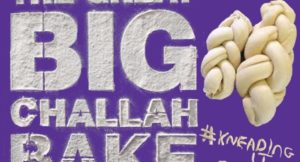
In a world that is more and more divided, The Great Big Challah Bake is bringing us together, one challah at a time. Another alarming reality is that many Jews are drifting away from their heritage, and nothing brings us back to our roots and unites us like this aromatic braided bread made lovingly by hand from the most basic ingredients, mainly flour, water, yeast, egg, sugar, salt. Every single week, in preparation for the Sabbath, this ordinary or mundane act of making bread is elevated and becomes holy and even magical,  as hundreds of women in the same room (and thousands across the globe) come together for the same mission. Last year, more than 500 women and girls, representing the entire spectrum of the St. Louis Jewish community and all levels of observance, bonded together to share their love of making challah. This year’s third annual event, October 26 at the JCC in Creve Coeur, will be bigger and better than ever. Continue reading
